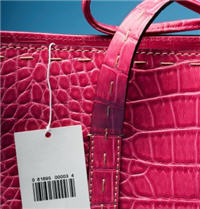While it’s a blessing for many shoppers that some retailers have very forgiving return policies, other customers have stretched companies like Bloomingdale’s to the limit with the practice known as “wardrobing”: Buying an item of clothing, wearing it once and then returning it with the tags still on. It’ll be a lot harder to do that at Bloomie’s soon, unless your idea of a party outfit is showcasing large, plastic tags on your garment. [More]
wardrobing

Manager Defends Retail Renting As Valuable Sales Tool
A former camera store manager came forward to defend retail renting as a common tactic that helps drive sales. Retail renting is when a customer buys a pricey item like a prom dress with the intention of returning it later. Our completely unscientific poll shows that 70% of you disapprove of retail renting, but our tipster insists that it is a victimless crime and a valuable sales tool. Our enlightening chat with the former manager, inside.

Is Retail Renting Ethical?
The Boston Globe has an interesting article in which they attempt to explain the phenomenon of “retail renting” or “wardrobing”–where consumers buy items with the intention of returning them when they’re done with the prom or the meeting or whatever. The article blames a mix of influences, including the economy and celebrities who obviously borrow many of their fancy gowns and jewelry.
Happy Returns Mean Happy Returning Customers
Our favorite? “Wardrobing.” This is the retail industry term describing the practice of a consumer wearing a piece of clothing once and returning it; it’s especially common with prom and other special-occasion attire. Yay for girls at a dance with the tag still on the dress. This was probably pretty common at our prom, which we did not attend. Actually, never mind that, the dresses probably still had the security tags on, if you know what we mean. —MEGHANN MARCO


